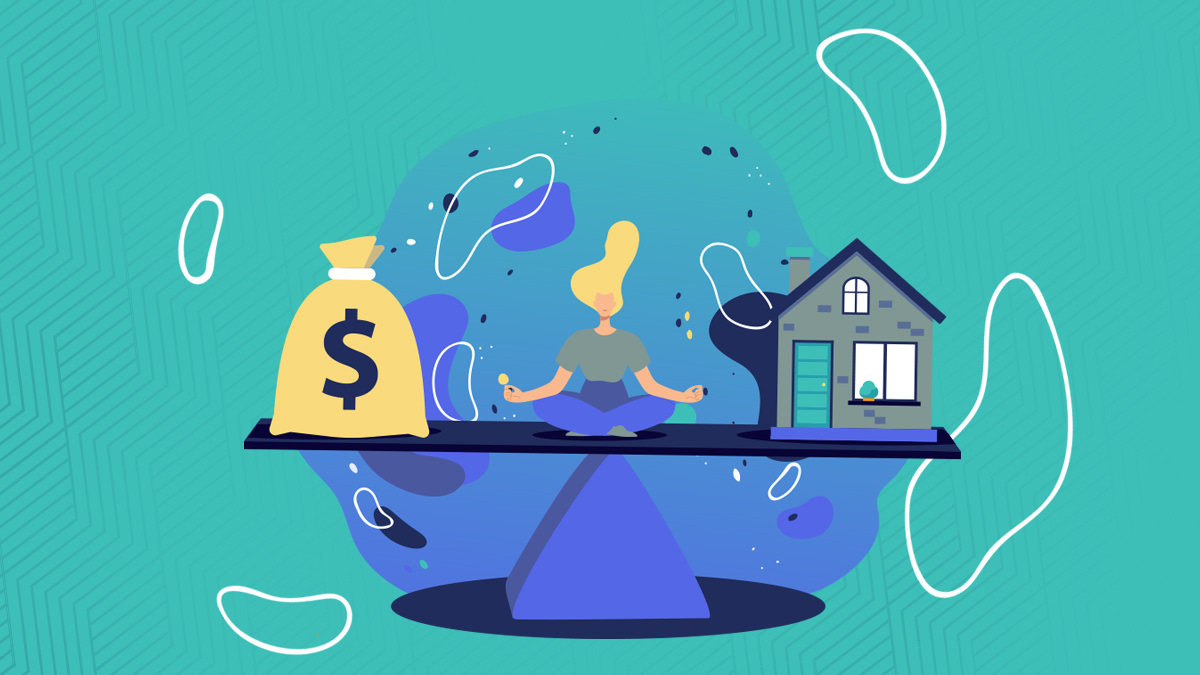Can You Consolidate Debt Into a First-Time Mortgage?

Joy Wallet is advertiser-supported: we may earn compensation from the products and offers mentioned in this article. However, any expressed opinions are our own and aren't influenced by compensation. To read our full disclosure, click here.
Understanding debt consolidation in a mortgage
- No min credit score
- Personalized rates
- Find results fast
- No maximum loan in most states
Types of debt that can be consolidated
Pros of consolidating debt into a mortgage
- Lower interest rates. A big plus of rolling your debt into a mortgage is that you might get a lower interest rate. Back in January 2021, mortgage rates dipped to about 2.65%, which made this option very attractive. But with today’s mortgage rates being much higher, it’s important to take a close look at your finances and think about the long-term effects before making a decision.
- Easier payments. Having one fixed payment each month can simplify budgeting. Plus, paying on time can boost your credit score.
- More cash for other expenses. You might lower your monthly payments, freeing up cash for important things like home improvements, education, or unexpected expenses.
- Tax benefits. If you list your tax deductions, you might be able to get a tax break on the interest you pay for your mortgage.
Cons of consolidating debt into a mortgage
- Higher down payment required. Lenders may require a larger down payment when consolidating debt into a mortgage. Maybe it’s smarter to use that money to pay off existing debts directly rather than tying it all into a new mortgage.
- Higher overall costs. While your monthly payment could be lower, you could end up paying more in interest over the life of the mortgage. Stretching your debt across a 15- or 30-year term means the total cost could be significantly higher.
- Risk of losing your home. Mortgages have lower interest rates because your house secures them. If you can’t keep up with the payments, you risk foreclosure.
- Spending issues aren��’t addressed. Consolidating debt doesn’t fix poor spending habits. If you don’t tackle the real issue behind your debt, you might just end up piling on even more debt and end up with a bigger mortgage and a tougher financial situation.
- Low fixed mortgage rates
- Check and monitor your credit for free
- Only a few steps to your best mortgage rates
- Great deals on your mortgage
Challenges for first-time homebuyers
- First-time homebuyers face unique challenges when consolidating debt into a mortgage. One of the biggest hurdles is limited credit history, which makes it much harder to qualify for a mortgage or secure a desirable interest rate. Lenders may see these buyers as higher risk without a proven track record.
- As first-time homebuyers, there is no equity from their previous home to help them. Thus, coming up with a larger down payment can be a real challenge. Without that safety net, putting debt into a mortgage can become a bit tricky. You'll need to plan carefully and have a good handle on your finances to ensure everything goes smoothly.
Professional advice and caution
Joy Wallet is an independent publisher and comparison service, not an investment advisor, financial advisor, loan broker, insurance producer, or insurance broker. Its articles, interactive tools and other content are provided to you for free, as self-help tools and for informational purposes only. They are not intended to provide investment advice. Joy Wallet does not and cannot guarantee the accuracy or applicability of any information in regard to your individual circumstances. We encourage you to seek personalized advice from qualified professionals regarding specific investment issues. Featured estimates are based on past market performance, and past performance is not a guarantee of future performance.
Our site doesn’t feature every company or financial product available on the market. We are compensated by our partners, which may influence which products we review and write about (and where those products appear on our site), but it in no way affects our recommendations or advice. Our editorials are grounded on independent research. Our partners cannot pay us to guarantee favorable reviews of their products or services.
We value your privacy. We work with trusted partners to provide relevant advertising based on information about your use of Joy Wallet’s and third-party websites and applications. This includes, but is not limited to, sharing information about your web browsing activities with Meta (Facebook) and Google. All of the web browsing information that is shared is anonymized. To learn more, click on our Privacy Policy link.
Images appearing across JoyWallet are courtesy of shutterstock.com.
We are entrepreneurs, investors, fintech enthusiasts, journalists, and masters of aggregating and deciphering data. We have been working in the financial services industry for over seven years and wanted to build a place where we can bring together the brightest minds and organizations to help you make more money.
With access to the right opportunities, you can take care of the ones you love and create a more prosperous lifestyle. We made Joy Wallet out of a desire to find the best financial partners, strategies and tools to help you achieve your life goals and make the most of money.










